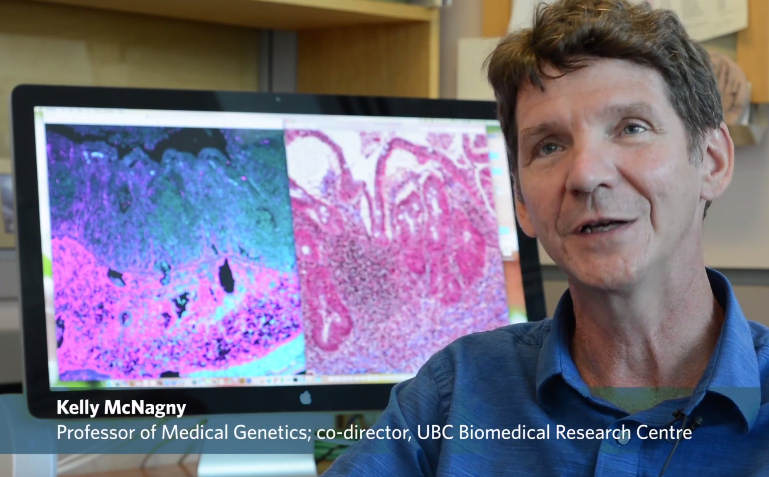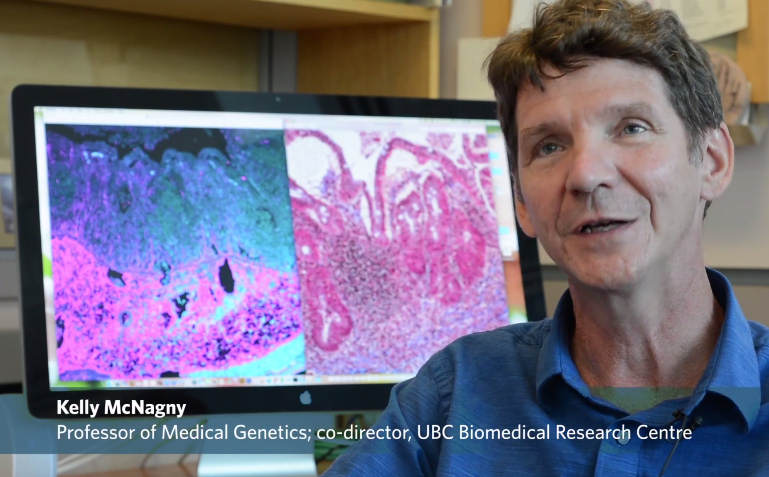
Scientists at the University of British Columbia have made a discovery that could potentially lead to treatments for a debilitating complication of Crohn’s disease.
Crohn’s disease is an inflammatory bowel disease in which the intestines of some patients can become blocked by thickened and scarred connective tissue–a condition known as fibrosis. When fibrosis occurs, surgical intervention is required to restore proper digestion. Repeated surgeries are not uncommon in Crohn’s patients.
In research outlined today in Science Immunology, scientists discovered a mutation that prevented mice from developing fibrosis after they were infected with a type of salmonella that mimics the symptoms of Crohn’s. The mutation had switched off a hormone receptor responsible for stimulating part of the body’s immune response.
“We found what we think are the inflammatory cells that drive fibrosis,” said co-author Kelly McNagny, professor of medical genetics and co-director of the UBC Biomedical Research Centre (BRC). “The gene that was defective in those cells is a hormone receptor, and there are drugs available that may be able to block that hormone receptor in normal cells and prevent fibrotic disease.”
What’s more, McNagny and his colleagues are hopeful that their discovery could be applied to other types of tissue that experience fibrosis.
“Fibrosis is a response to chronic inflammation, but it is also a process that occurs during normal aging. If you can reverse this, you’ve essentially found a way to promote regeneration rather than degeneration,” said lead author Bernard Lo, a PhD candidate at BRC.
Liver cirrhosis, chronic kidney disease, scarring from heart attacks and muscle degeneration all result in tissue fibrosis, noted McNagny. “We think that we can potentially block complications of all these age-related fibrotic diseases by dampening these particular inflammatory cell types,” he said.
The next step for McNagny’s lab will be to test drugs to find out whether they can stop or reverse fibrosis in mice.
###
“The orphan nuclear receptor ROR alpha and group 3 innate lymphoid cells drive fibrosis in a mouse model of Crohn’s disease” appears in Science Immunology.
The study received funding from the Canadian Institutes of Health Research (CIHR) and AllerGen NCE Inc., the Allergy, Genes and Environment Network.
Watch a video about the work here: https://youtu.be/MR8-zU8-NM0
Media Contact
Heather Amos
[email protected]
604-822-3213
@UBCnews
http://www.ubc.ca
The post Discovery offers hope for new Crohn’s disease treatment appeared first on Scienmag.





